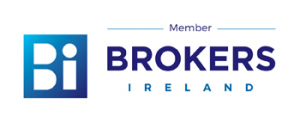Well.. No.. and Yes
I’ve penned a few jargon busting articles here over the last few years as I’ve assumed (yes, I know what they say about assuming) that it is only the language around Pensions that is complicated. In talking to people about pensions for more of my waking hours than is ideal, I’ve come to realise it’s not just the jargon that is the problem.
A Pension is defined in the dictionary as:
- A fixed amount, other than wages, paid at regular intervals to a person or to the person’s surviving dependents in consideration of past services, age, merit, poverty, injury or loss sustained, etc.
- Retirement pension.
- An allowance, annuity, or subsidy.
So in essence, the word Pension is actually referring to the payment you receive when you retire. However, it has become synonymous with the vehicle into which your money is set aside or ”invested” in order to provide this payment when you retire. This adds another layer of complication.
Investing in your future
In the pre-retirement phase, you should be regularly making contributions or “investing” in pension in order to provide yourself with an adequate income in retirement. And here’s where it gets complicated, depending on your employment status, you could be investing in an Occupational Pension Scheme, which could be either defined contribution or defined benefit – or, you could be investing in an Executive Pension, Personal Pension, Retirement Annuity Contract or a Personal Retirement Savings Account (PRSA). You might even use a Small Self- Administered Scheme.
Yes; it appears complicated and personally, I think the pension industry could narrow these options down, especially as fundamentally they all do the same thing. They invest your money for you throughout your working life and give it back to you when you retire. Why do we need so many different options? (I don’t have an answer to that question to be honest!)
Each type of pre-retirement pension has its own set of rules regarding who it is for, when you can retire from it how it calculates your benefits. This makes it a minefield for those not merrily working away as a pension nerd. They also have different charges. – So what is my advice to the Construction sector in dealing with Pensions?
Conditions that broadly apply:
- If you are an employee, and your employer offers you a pension – that will be through an occupational pension scheme. It might be Defined Benefit or more likely it will be Defined Contribution – but that’s outside your control anyway. Don’t think twice. Join. Easy
- If you are an employee, and your employer doesn’t offer you a pension, then they must offer you a PRSA. Invest in this. Your employer has to do the administration for you through payroll. It will make things easier for you.
- If you are a self- employed sole trader, then it’s a retirement annuity contract or PRSA. Talk to an independent adviser about which offers the best value for money.
- If you are a company owner, you can chose to be in your company pension scheme for ‘Schedule E’ earnings, but there are many other options. Your accountant and /or financial adviser should help you make the best decision for you and your company.
Here to help you navigate your way to financial security.
The Milestone Advisory team are qualified financial services consultants. We specialise in helping professionals in the construction sector and related industries. Our team will work with you to review your finances, explaining your options in clear English.
No jargon – just the facts.
For further information please contact Susan O’Mara via email or phone: (01) 406 8020. Milestone Advisory DAC t/a Milestone Advisory is regulated by the Central Bank of Ireland.






Leave a Reply
Want to join the discussion?Feel free to contribute!